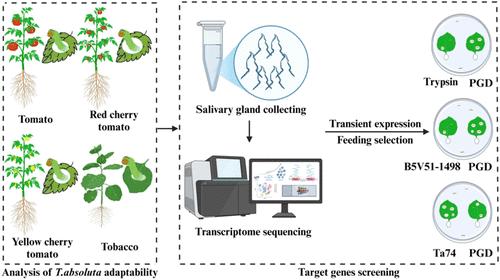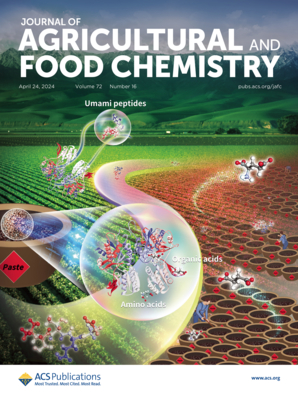Adaptability Analysis of Tuta absoluta to Different Hosts and Related Salivary Genes Identification
IF 5.7
1区 农林科学
Q1 AGRICULTURE, MULTIDISCIPLINARY
引用次数: 0
Abstract
Tuta absoluta is a significant agricultural pest primarily affecting Solanaceae plants, resulting in substantial economic losses in agriculture. Insect saliva is an intermediary between insects and plants, playing a crucial role in modulating host adaptability and plant defense. This study analyzed the adaptive differences of T. absoluta on four plants using the two-sex life table method. Results indicated that the host adaptability of T. absoluta to tobacco is worse than its adaptability to the other three varieties of tomatoes. The salivary gland transcriptome analysis and signal peptide prediction revealed that Trypsin, B5 V51–1498, and Ta74 were highly expressed in the salivary glands of T. absoluta subjected to tobacco treatment and exhibit the characteristics of secretory proteins, alongside significant feeding selection differences. Our findings elucidate the adaptive strategies of T. absoluta larvae on various Solanaceae plants and offer new insights into the salivary protein-mediated plant defense processes.

求助全文
约1分钟内获得全文
求助全文
来源期刊
CiteScore
9.90
自引率
8.20%
发文量
1375
审稿时长
2.3 months
期刊介绍:
The Journal of Agricultural and Food Chemistry publishes high-quality, cutting edge original research representing complete studies and research advances dealing with the chemistry and biochemistry of agriculture and food. The Journal also encourages papers with chemistry and/or biochemistry as a major component combined with biological/sensory/nutritional/toxicological evaluation related to agriculture and/or food.

 求助内容:
求助内容: 应助结果提醒方式:
应助结果提醒方式:


